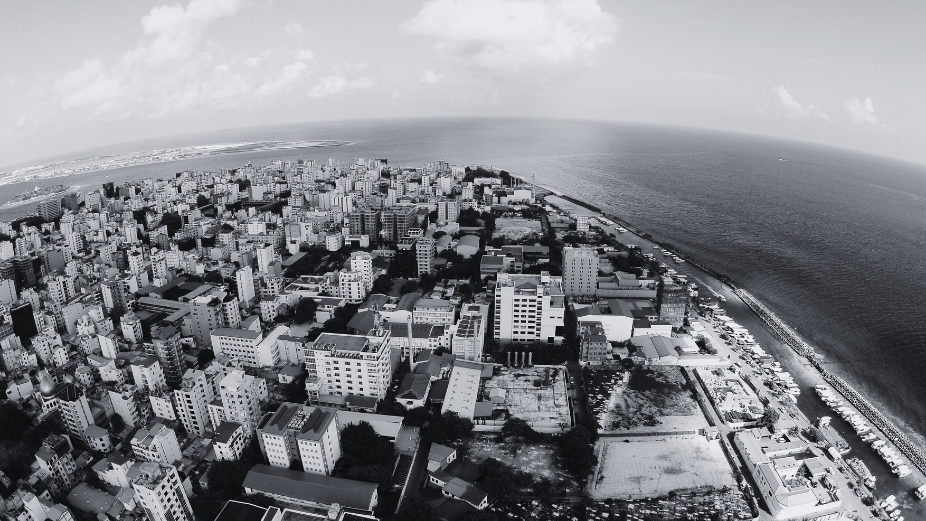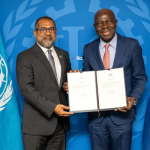
The issue of permanent address and residency rights in the Maldives has long been a topic of contention, revealing underlying inequalities and economic challenges that contradict the nation’s constitutional principles. While the Constitution of the Maldives guarantees freedom of movement and residency rights for all citizens, the practical application of these rights often falls short, leading to significant disparities, particularly for those living outside the capital, Malé.
A Contradiction in Constitutional Rights
Article 41 of the Maldivian Constitution clearly states that every citizen has the freedom to enter, remain in, and leave the Maldives, as well as to travel within the country. It also ensures the right to move to and take up residence on any inhabited island and guarantees equal access to rights and benefits from any island where one has established residency. However, the implementation of policies surrounding permanent addresses seems to contradict these constitutional guarantees.
The Case of Malé: Centralisation and Inequality
Malé, the densely populated capital, is undeniably the focal point of economic activity, government services, and educational opportunities. As a result, many Maldivians have spent their entire lives in the congested capital. Despite living, working, and contributing to Malé’s economy, residents remain registered in their birth islands for voting purposes, a practice that distorts political representation and perpetuates inequality.
The latest census data indicates that 46% of the Maldivian population are migrants living in islands where they were not registered at birth. This misalignment between residency and voter registration can lead to skewed political priorities and resource allocation, favouring areas with higher registered populations rather than where people actually reside and contribute economically.
The Political Weapon of Permanent Address
The concept of a permanent address has become a political tool, often used to secure votes rather than reflect true residency. Those who have migrated to Malé for better opportunities are still required to transfer their registration to the capital to access housing under government projects. However, many retain their original registration to influence elections in their birth constituencies, despite having no vested interest there.
This practice has led to criticisms of the government’s preferential treatment of those with a Malé address, often allocating valuable land and housing to residents with a city address while neglecting long-term residents who contribute to the city’s economy. Such policies echo historical practices where islanders faced discrimination, such as the “Vaaru tax” and “Kuda Sitee” permits.
Economic Disparities and Development Challenges
The economic centralisation in Malé has exacerbated disparities between the capital and the outer islands. Many islanders migrate to Malé seeking education, healthcare, and employment opportunities, leaving their birth islands economically stagnant. This migration trend undermines the potential for balanced regional development and reinforces the perception that islands outside Malé have no future.
The current system of permanent address registration stifles democratic representation and economic equity. Citizens who live and work in Malé but vote in their birth constituencies distort the true needs and priorities of both regions.
The Need for Reform
Reforming residency and electoral laws to reflect actual residency rather than permanent address is crucial for ensuring equitable representation and resource distribution. The current laws should be revised to allow citizens to vote in constituencies where they actually live and contribute economically. This change would ensure that elected officials truly represent the interests of their constituents and address the unique challenges of their regions.
Furthermore, abolishing the outdated concept of permanent address would align with the constitutional guarantee of freedom of movement and residency rights. It would also address the economic and social disparities that arise from the current system, promoting a more inclusive and equitable society.
Learning from Global Practices: Examining Residency and Voting Rights
Examining residency and voting rights in other countries can provide valuable insights for the Maldives. For instance, India’s Representation of the People Act ensures that citizens vote in the constituencies where they reside, reflecting their current place of residence and economic contributions. This practice helps ensure that political representation aligns with the actual population distribution and their needs.
In the United States, voting rights have evolved to address historical inequalities. Although the country faces challenges with felony disenfranchisement laws, significant progress has been made in restoring voting rights to previously disenfranchised citizens. This includes executive orders, new legislation, and constitutional amendments aimed at reintegrating individuals into the political process after they have served their sentences.
In Europe, many countries allow non-citizens who are long-term residents to vote in local elections. This approach recognizes the contributions of all residents to the community and ensures their voices are heard in local governance. Countries like Belgium, Denmark, and Finland have adopted such inclusive policies, enhancing democratic participation and social integration.
For the Maldives, addressing residency rights and revising electoral laws are essential steps toward fostering true democracy and economic fairness. Ensuring that all citizens, regardless of their place of birth, have equal access to housing, voting rights, and public services can help the nation move towards a more just and prosperous future. By learning from these global practices, the Maldives can create a more inclusive and representative political system that truly reflects the needs and contributions of its people.
Path Forward
The issue of permanent address and residency rights in the Maldives highlights significant inequalities and economic challenges that contradict constitutional guarantees. Reforming these practices is vital for ensuring equitable representation, balanced regional development, and adherence to the constitutional rights of all Maldivians. By addressing these issues, the Maldives can create a more inclusive and democratic society that benefits all its citizens, regardless of their registered permanent address.












